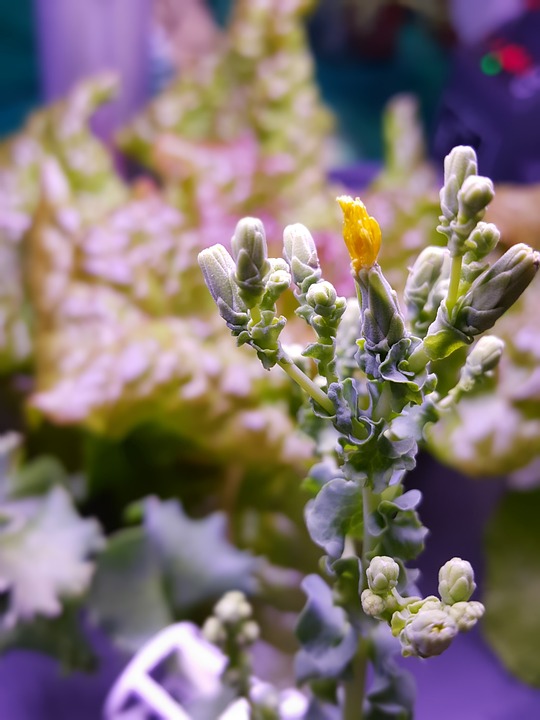Introduction
Green living is becoming increasingly important in today’s world as we become more aware of our environmental impact.
By making conscious choices to reduce our carbon footprint, we can contribute to a more sustainable future.
One way to do this is by embracing home hydroponic gardening, which not only allows you to grow your own fresh produce but also significantly reduces your carbon footprint.
Let’s explore the benefits of having a home hydroponic garden and how it can make a difference.
The Benefits of Home Hydroponic Gardening
1. Water Conservation:
One of the major benefits of a home hydroponic garden is its efficient use of water.
Traditional soil-based gardening often leads to significant water wastage due to evaporation, runoff, and inefficient irrigation systems.
In a hydroponic garden, plants are grown in a nutrient-rich water solution, eliminating the need for excessive water usage.
The water circulates within the system, making it possible to grow plants using up to 90% less water compared to traditional gardening methods.
2. Reduction in Chemical Usage:
Pesticides and herbicides used in conventional gardening can have harmful effects on the environment and human health.
In a hydroponic garden, there is minimal need for these chemicals as the controlled environment reduces the risk of pests and weeds.
This reduces your reliance on harmful chemicals, making your gardening practices much more eco-friendly.
3. Efficient use of Space:
A home hydroponic garden can be set up virtually anywhere, even in small urban spaces or apartments.
The plants can be grown vertically or in smaller containers, maximizing space utilization and allowing you to enjoy the benefits of fresh produce even if you don’t have access to a large backyard.
This efficient use of space helps reduce the strain on land resources and lowers the carbon footprint associated with transportation of produce to your home.
Getting Started with Home Hydroponic Gardening
1. Choose the Right System:
There are various types of hydroponic systems available, each suited to different plant varieties and personal preferences.
Some popular options include deep water culture, nutrient film technique, and vertical hydroponics.
Research and select a system that fits your space constraints and gardening goals.
2. Select the Plants:
Consider the plants you want to grow in your hydroponic garden.
Leafy greens like lettuce, herbs, and tomatoes are great choices for beginners.
It’s important to understand the specific nutrient requirements and growing conditions of each plant variety to ensure success.
3. Set Up the System:
Follow the instructions provided with your chosen hydroponic system to set it up correctly.
Make sure you position your garden in an area that receives adequate natural light, or consider using artificial grow lights if necessary.
Fill the system’s reservoir with the appropriate nutrient solution and place your plants in the growing medium.
4. Maintain and Monitor:
Regularly check the pH and nutrient levels of your hydroponic system to ensure optimal plant growth.
Monitor the water level and make any necessary adjustments.
Keep an eye out for pests or diseases and take immediate action to prevent them from spreading.
FAQs
Q: Is a hydroponic garden more expensive to set up compared to traditional gardening?
A: The initial setup cost of a hydroponic garden may be higher due to the need for specific equipment and materials.
However, over time, the reduced need for water, fertilizers, and pesticides can lead to significant cost savings.
Q: Can I grow all types of plants in a hydroponic garden?
A: While most plants can thrive in a hydroponic system, certain root vegetables and large plants with extensive root systems may not be suitable.
However, leafy greens, herbs, tomatoes, peppers, and strawberries are popular choices for hydroponic gardening.
Q: Do hydroponic gardens require a lot of maintenance?
A: Hydroponic gardening requires regular maintenance such as checking nutrient levels, pH levels, and water levels.
However, the automated systems available in the market today can significantly reduce the manual labor required compared to traditional gardening.
Q: Can a hydroponic garden be scaled up for commercial use?
A: Absolutely! Hydroponic systems can be scaled up to suit commercial agriculture needs.
Many commercial farms are now utilizing hydroponics as a sustainable and efficient way to grow crops.
By embracing home hydroponic gardening, you can actively contribute to reducing your carbon footprint while enjoying the benefits of fresh and nutritious produce.
It’s a win-win situation for both you and the environment!




